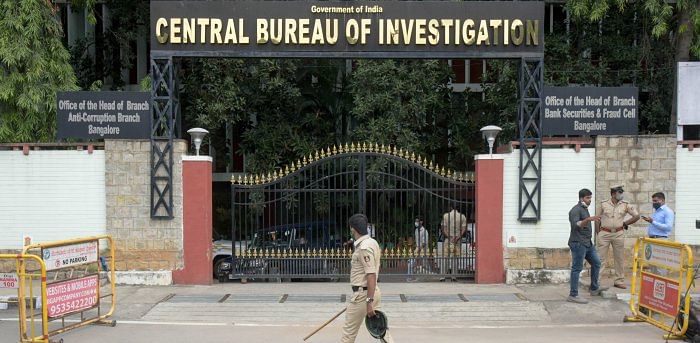
The Maharashtra government recently withdrew general consent to the CBI to investigate in the state. Thus, Maharashtra adds itself to the general trend of states such as Andhra Pradesh, Chhattisgarh, West Bengal etc having withdrawn general consent to the CBI.
This, in fact, is a natural consequence of what the CBI has done to itself. It has been criticised for its political way of functioning which is aimed to please its ‘political masters’ than actually investigate and perform its duties properly. So much so, the highest court of the land, the Supreme Court, had called it out in no unclear terms as “its master’s voice” and “caged parrot”.
Maharashtra’s withdrawal can be traced to recent instances where the state police and CBI have been pitted against each other to investigate cases so much so that these cases have landed in courts demanding CBI investigation. In Arnab Goswami’s case, it was stated that the Maharashtra police would not conduct a fair investigation and hence, CBI investigation was necessary. This was rejected by the court.
In investigation of death of Sushant Singh Rajput, the case was handed over to the CBI despite the court not finding any evidence of wrong doings of the Mumbai police. Recent event in this tussle is the alleged TRP scam by some media houses such as Republic TV. In this case, it was likely that it would be sought to exclude Maharashtra police for no reason except that CBI could be used for political advantages, as feared by the ruling Shiv Sena.
The CBI finds its origin in a pre-independence 1941 law on Special Police Establishment (SPE). This was then extended to independent India via the Delhi Special Police Establishment Act, 1946 (DSPE Act). Interestingly, CBI is not a body under DSPE Act per se but a body created by a notification under the DSPE Act.
The agency is authorised under the DSPE Act to investigate the alleged offence. There is a general power of investigation in Union Territories but in relation to any state, the power can be exercised only upon the consent of that state government.
Division of powers
The Constitution envisages division of powers between states and the Union to be exercised exclusively by them and some powers to be exercised by both entities. This is subject to some exceptional circumstances where the Union may exercise powers given to the state. This idea is encapsulated in the form of Union List, State List and Concurrent List. It is noteworthy that ‘police’ falls under State List thereby giving exclusive control to the state over this matter.
Interestingly, the CBI as a body was declared unconstitutional by the Gauhati High Court in 2013 which was subsequently stayed by the Supreme Court. Since then, the Supreme Court has not heard and decided the appeal on constitutionality of CBI. The CBI has therefore been functioning on not so sound grounds than on which a body of such repute and responsibility would like to. The CBI is under the administrative and financial control of the Central government. This gives scope for control and politicisation of the body.
The agency was set up possibly for the dual idea of impartiality and competence, to provide for fair investigation in the former and provide skilled investigation in complex cases in the latter. While the competence is generally not under attack, it is impartiality that is questioned quite frequently.
It so happens that Central government also has some political interest in the matter being investigated and uses CBI for favourable outcomes. Hence, the investigation gets politicised and doesn’t really bring about a fair result. Therefore, CBI has struggled on both counts of impartiality and administrative control. It is noteworthy that the CBI does far better in those cases which are not political or high-profile in that sense of the term.
It is amply clear that CBI owing to numerous reasons has not been able to follow the golden thread of justice: justice should not only be done but seen to be done. There is always suspicion of influence and politicisation of CBI which has also reflected in decreasing public faith in it. It is need of the hour that CBI be given statutory status where it is made independent and free from any administrative interference or otherwise. This would go a long way in ensuring that we have a fair body to resort to when cases involving local influence or some other influence cannot be investigated by the state police.
(The writer is a student at the National Law School of India University, Bengaluru)